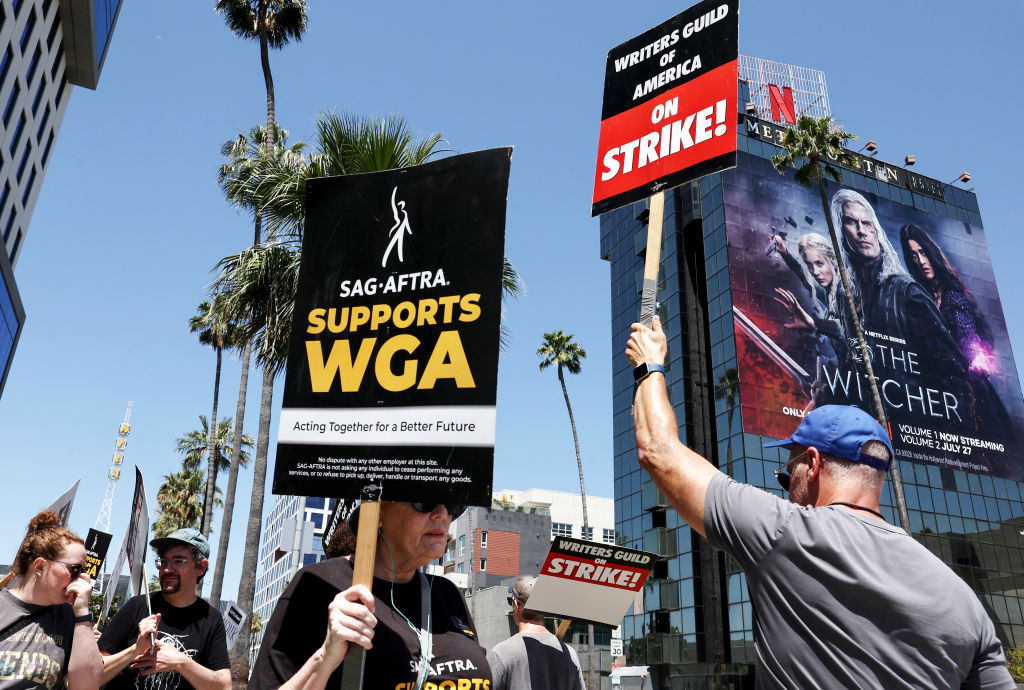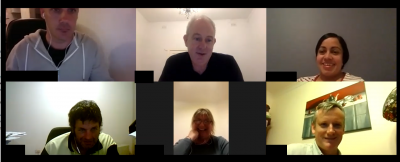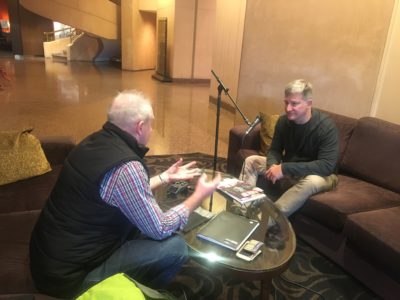Unions square up against AI
Hollywood is currently at a standstill as SAG-AFTRA and the Writers Guild of America (WGA) wage war against the Alliance of Motion Picture and Television Producers (AMPTP) for fair contracts from film and television streaming giants like Netflix, HBO, Disney and Paramount (among others).
At the center of their concerns? The rise of artificial intelligence in scriptwriting and film potentially taking work from the hands of actual creatives. It’s a concept that has already made its way into popular culture via zeitgeist-y Netflix show Black Mirror in the episode Joan is Awful.
In Australia the Media Entertainment and Arts Alliance (MEAA) has warned the government that generative AI tools like ChatGPT and Midjourney pose a “unique” threat to the artists, musicians, journalists, photographers, and performers.
Their fight is around sanctions and compensation being paid by big tech for the use of content utilised to train AI technologies.
In their submission to the government, MEAA wrote, “AI tools which profit from the work of media or creative professionals must introduce methods to compensate the creators whose work is used to train these tools.”
“It is conceivable that many of our members could be replaced by various versions of generative AI – and thus it is important that consent, copyright and the creativity of the individual are protected, and placed at the heart of any regulation.”
The union is also calling for copyright protections to be extended to content that mimics an creatives work to prevent their style “being copied or ‘passed off’ without authorisation or payment”.
The recommendation on behalf of the MEAA is to establish registers containing authorisations provided by creative rights holders. Additionally, AI tools must obtain prior licensing or consent before extracting copyrighted content.
Microsoft and Google have come out against the call, saying that such sanctions will restrict the growth of AI industries and innovations in Australia.
In their submission Google argued, “We are already seeing the impact of a lack of allowances under Australian copyright legislation for AI research and open source innovation more broadly. This is the core risk to Australian talent, investment and local development capability we could encourage government to address.”
As our lawmakers scramble to keep up with the rapidly evolving AI beast, artists are taking it into their own hands to hold AI industries to account for their unauthorised use of their content to train their models. Comedian Sarah Silverman leads the charge in the US, suing ChatGPT owner Open AI and Meta (Facebook & Instagram) for using their content without their permission to train their AI.
And it isn’t just creatives that are concerned about the impact on their industry. In a poll conducted for The Times, nearly half of Americans (45%) indicated that they are worried about the effect artificial intelligence will have on their industry. This percentage rises to 57% among 18- to 34-year-olds, with almost two-thirds of American adults indicating that they thought entertainment unions were justified in making AI a centerpiece of their negotiating demands.
Again in a local context, the Labor Party revealed this week that it has created a policy position on AI, which will for the first time outline the party’s practical and philosophical approach to the growing industry.
The policy will become part of Labor’s National Platform, which outlines its future priorities and guides government policy. Over the past few months, Ed Husic, the Minister for Industry and Science in the Labor party, has engaged in extensive discussions with experts and industry leaders, with the aim to balance the economic opportunity presented by AI with the impact it will have on traditional industries.
According to an article in the Sydney Morning Herald, the language in the party’s draft manifesto places a strong emphasis on safeguarding workers’ rights within the context of the trade union-based party’s technology agenda.
In response to Labor’s policy outline, the peak union body ACTU says it supports the creation of a new government body to manage the AI revolution.
ACTU’s assistant secretary Joseph Mitchell said, “If managed properly, new technologies and new ways of organising work have a great potential to improve, rather than reduce inequality.”
“Workers facing changes in their workplace due to automation or introduction of AI need to be consulted and ensure that any introduction is accompanied by a fair technological transition”.




